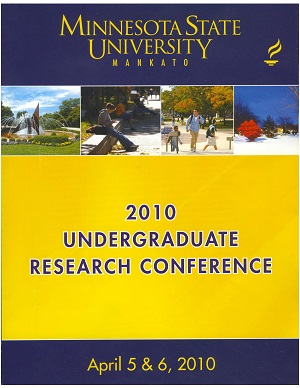Burner and Stingers (Management and Prevention)
Location
CSU 284A
Start Date
5-4-2010 10:00 AM
End Date
5-4-2010 12:00 PM
Student's Major
Human Performance
Student's College
Allied Health and Nursing
Mentor's Name
Theresa Mackey
Mentor's Department
Human Performance
Mentor's College
Allied Health and Nursing
Second Mentor's Name
Jeff Chambers
Second Mentor's Department
Human Performance
Second Mentor's College
Allied Health and Nursing
Description
In collision sports the brachial plexus injury is a common issue dealt with by athletic trainers. The intense sensation of a burning or stinging feeling radiating down the arm is often described in laymen’s term as a
―Burner or Stinger.‖ Preventing the burner/stinger has been a constant struggle for many athletic trainers. Recommendations for preventing burners/stinger are documented in the literature. Some common ways for preventing this type of injury include; increase flexibility, strengthen the neck musculature, ensure coaches teach proper blocking and tackling techniques, and ensure the athletes wear appropriate protective equipment. Even though protective equipment prevents hyperextension of the cervical spine, it does not limit or prevent lateral flexion or the combination of extension, lateral flexion, and rotation of the cervical spine which are more common mechanisms of injury for the burner/stinger. In addition to treating and preventing the burner/stinger, the issue of athletes not reporting this injury to athletic trainers has made it very difficult to manage. Chronic issues can result from the athlete not reporting a burner/stinger and increases recurrence of the injury. There needs to be further research done, to determine better methods to prevent recurrence of this injury, and also to address the issue of the injury being underreporting by athletes.
Burner and Stingers (Management and Prevention)
CSU 284A
In collision sports the brachial plexus injury is a common issue dealt with by athletic trainers. The intense sensation of a burning or stinging feeling radiating down the arm is often described in laymen’s term as a
―Burner or Stinger.‖ Preventing the burner/stinger has been a constant struggle for many athletic trainers. Recommendations for preventing burners/stinger are documented in the literature. Some common ways for preventing this type of injury include; increase flexibility, strengthen the neck musculature, ensure coaches teach proper blocking and tackling techniques, and ensure the athletes wear appropriate protective equipment. Even though protective equipment prevents hyperextension of the cervical spine, it does not limit or prevent lateral flexion or the combination of extension, lateral flexion, and rotation of the cervical spine which are more common mechanisms of injury for the burner/stinger. In addition to treating and preventing the burner/stinger, the issue of athletes not reporting this injury to athletic trainers has made it very difficult to manage. Chronic issues can result from the athlete not reporting a burner/stinger and increases recurrence of the injury. There needs to be further research done, to determine better methods to prevent recurrence of this injury, and also to address the issue of the injury being underreporting by athletes.
Recommended Citation
Hunter, Anthony. "Burner and Stingers (Management and Prevention)." Undergraduate Research Symposium, Mankato, MN, April 5, 2010.
https://cornerstone.lib.mnsu.edu/urs/2010/oral-session-03/5




